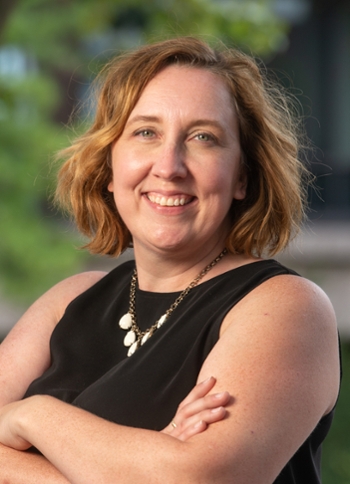Virtual Spring Break Allows SIUE Students to Delve into Social Issues
 In times past, students participating in Southern Illinois University Edwardsville’s spring break activities involved them putting their hands and feet to good use for the community. This year, students engaged their minds and hearts in order to better learn about poverty, race and empowerment in St. Louis and the Metro East area.
In times past, students participating in Southern Illinois University Edwardsville’s spring break activities involved them putting their hands and feet to good use for the community. This year, students engaged their minds and hearts in order to better learn about poverty, race and empowerment in St. Louis and the Metro East area.
Several students participated in SIUE’s first Virtual Alternative Spring Break, a three-part series held Saturdays, March 27, April 3 and 10, according to Carolyn Compton, assistant director of Community Engagement with the Kimmel Student Involvement Center. The alternative spring break was held in partnership with AMP Mission: St. Louis.
“My team and I thought this type of program that looks at poverty and systemic racism through the lens of St. Louis specifically, would be beneficial to students who are and are not from the area,” explained Compton. “The history about St. Louis’ role in racism and slavery, and subsequent generational issues linked to poverty, racism and the lack of access to resources, can be extremely watered down or sometimes not even shared in some spaces.”
During the first session on the history of poverty, there was discussion surrounding privilege.
“We shared about how we fit into the space of food insecurity and different levels of poverty,” noted Compton. “We discussed cultural humility, cultural competency and the differences, as well as the idea of right and wrong as it relates to making your way in a world that is not equitable.” The service project involved writing personal notes to elderly clients of AMP Mission: St. Louis.
The second module on the impact of race focused on the effects of it in the St. Louis area. “Some of the policies that were created kept Black people out of certain neighborhoods and reduced access to housing,” she shared. “Additionally, we discussed the generational effects of this exclusionary practice because owning real estate is a major component in wealth building in America.” The interactive learning component involved students creating essentials bags that contained nonperishable food and toiletry items. The instructions were to keep the bags on hand and or in vehicles in order to give them away to those in need.
The final session on empowering solutions involved a discussion and reflection on childhood experiences and correlations between socio-economic status and outcomes on standardized testing. “The interactive learning component involved a simulation project to use a grant to address poverty in a small town with other challenging issues,” said Compton. “We also talked about the difference between charity and empowerment.”
“It was crucial to have the ability to self-reflect on how we view ourselves in the spaces that contribute to these systems that propel racism, poverty, food insecurity, etc. in the St. Louis area,” she shared. “It was also important to understand the difference between cultural humility and cultural competence, and why it’s important.
“The program addresses SIUE’s ‘Fierce Urgency of Now’ campaign. The Community Engagement team takes this seriously and is working to practice and engage with it every day. The Alternative Spring Break called on students to learn the value of service and how to apply it, as well as how to be a good global citizen.”
Other Community Engagement team members included graduate assistants Meredith Bates and Arieanna Morris, and social work students Christopher Barry and Molly Hagen-Johnson.
Photo:
Carolyn Compton, assistant director of Community Engagement with the Kimmel Student Involvement Center.










